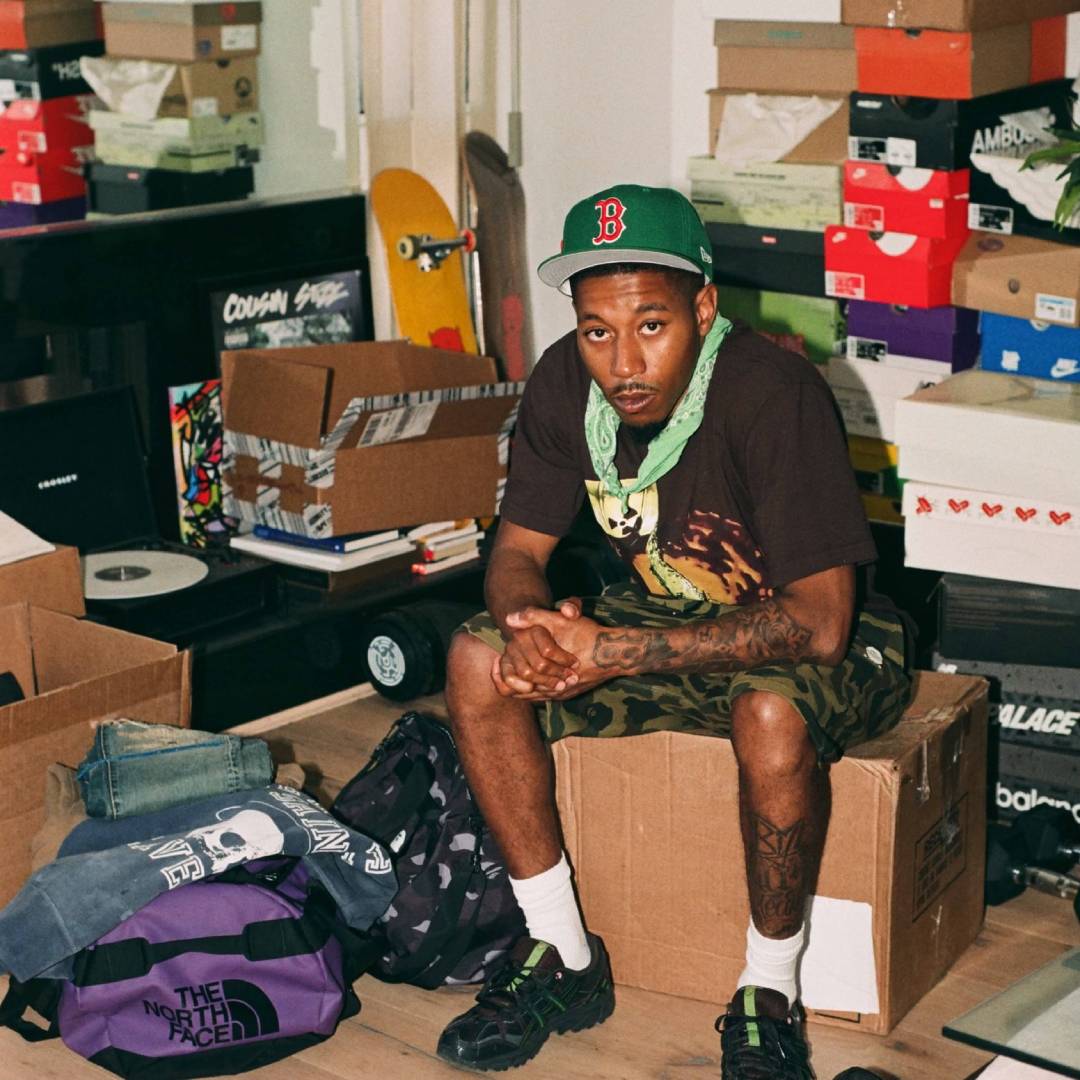Image via Marika Belamarich
Dr. Dre’s The Chronic being listed as one of the best Bay Area rap albums is why Alan Chazaro doesn’t trust anything generated by AI.
There may not be another major city in the U.S. more collectively misunderstood than Boston. On the surface, it’s quintessentially American — not too big, not too small — adhering to mainstream values rooted in Irish Catholicism and old-world Puritanism (you still can’t even buy alcohol on a Sunday). Add to that an antagonizing leprechaun logo, the twin spirits of Larry Bird and Tom Brady, and a Red Sox team that is rigidly clean-shaven, and you get one of the country’s most white-centric spaces.
But step into Suffolk County’s streets — outside of Boston’s financial district and beyond the glamorous, brick-lined arteries that weave through downtown’s surrounding neighborhoods where Boston marathoners are cheered on — and you’ll encounter stories of invisibility and perseverance in a working-class port city. Formerly the center for radical abolitionism, the Bean is where Malcolm X got his game and where The Ghetto, one of the first ever radio programs in the nation exclusively dedicated to rappers, began airing in 1979.
As the West Coast son of Mexican immigrants who spent a few brutal winters of my adulthood working in New England’s largest city, everything I once thought I knew about the 617 — based on Jimmy Fallon rom-com scenes, Ben Affleck’s braggadocio and hyperbolic sports radio diatribes — didn’t portray the real people I met there. Luckily, Cousin Stizz does.
An ultra-laidback observer, Stizz has cooly risen like the Prudential Tower to become the region’s most notable rapper of the last decade (and arguably all-time) with effortless depictions of what the land of threes (Adidas) and trees (Tims). He embodies the spirit of the Bostonians who aren’t Dockers-wearing yacht owners on the harbor or hammered frat boys clamoring at Celtics games.
Dorchester is a neighborhood where colonial architecture looms over its icy sidewalks, where the red stone and iron of a centuries-gone industrial boom dictates the cold, hardened spirit of an overlooked population. Once largely white (see: Mark Wahlberg), it’s now a neighborhood and city predominantly inhabited by immigrants and people of color. Fields Corner, specifically, is where Stizz soaked up his hometown’s lessons and gained his savvy, unapologetic world outlook. With a major subway station along the city’s busy transit line, it’s an active, fast-moving area with gritty textures that Stizz has been delivering sonically since his breakout single, “Shoutout,” off his ceremoniously titled debut, Suffolk County, in 2015.
A benefactor of internet-age pluralisms, Stizz cross-stitches influences that range from E-40 to Final Fantasy. Most notably, he introduced Southern-cadenced, crawling bass lines and simplistic, minimally effusive bars about Bape hoodies, disillusioned mortality, and discarded blunt guts to the region’s soundscape. One might mistake his tales of a hazardous underworld, out-of-state rental cars and restrained, marijuana-induced meditations on mortality to be about any other urban metropolis. And maybe they could be.
But it’s the subtle specificity of his phrases and references (using New England slang like “forcing it” — a longtime Boston favorite — and filming videos in front of the Zakim Bridge or in the alleyways of Boston’s clapboard houses) that best triangulate his coordinates. Before Stizz, New England’s hip-hop was known for a robust boom-bap scene of the 90s and off-kilter, intellectual musings of artists like Apathy the Alien Tongue, Esoteric, Akrobatik, and Mr. Lif. Only Guru , Edo.G (Boston’s legendary Roxbury emcee), and Benzino (a mid-level lyricist who gained his fame through his co-ownership of The Source magazine) have reached the heights that Stizz is currently entering. But they all fell short of firmly planting Boston’s flag on rap’s lunar surface.
With his sixth project forthcoming, Stizz is entering nearly a decade of music output, approaching 1 million monthly listeners on Spotify. Most impressively, Stizz’s solo ascension has been lackadaisical and unconcerned with fame, casually documenting street happenings over bell-heavy, anime-glazed productions supplied by collaborators like Snapz and Xair. With his two latest singles, “The Fan” and “Comin For Everything,” it’s becoming clearer than ever that what Stizz is doing for Boston is akin to what Curren$y has done for New Orleans or what Larry June has done for San Francisco — who are providing independent blueprints for their cities while enjoying a low-profile existence dedicated to money and music. With Stizz, it turns out, it’s that f*cking simple.
I caught up with Boston’s Fresh Prince over the phone before he went into the studio — on the exact day that marked the 8-year-anniversary of his first album’s release. With the liberated ease of someone who is living on their own terms, he wanders from expressing gratitude to reflecting on his maturity to the Zelda game we’re both currently playing on Nintendo Switch. Just like his music, there’s no pretense, no grand entrance. Instead, it felt like linking up with a favorite cousin after months of being separated and catching up on all the good shit.

